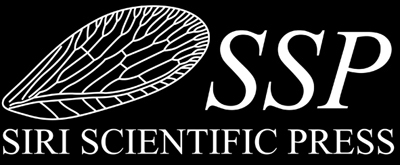Palaeontological Association 2015 prize winner for best talk
Posted by David Penney on
Congratulations to Jack Oyston of the University of Bath for winning one of our book tokens for the best student talk at the Palaeontological Association Annual Meeting held in December. The book you requested will be winging its way to you shortly.

The details of Jack's talk are as follows:
What limits the morphological disparity of clades?
*Jack W. Oyston(1), Martin Hughes(2), Peter J. Wagner(3), Sylvain Gerber(4) & Matthew A. Wills(1)
1-University of Bath, UK, 2-Natural History Museum, London, UK, 3-Smithsonian Institution, USA, 4-University of Cambridge, UK
ABSTRACT
Variation in form within clades is decoupled from estimates of diversity. Specifically, groups tend to reach maximum levels of morphological disparity relatively early in their evolutionary histories, even if diversity is low. This pattern is found in many clades of both animals and plants, suggesting it may represent a universal evolutionary phenomenon. This suggests a ‘restricted morphospace’, consistent with an observed decrease in the rate of origination of novel bodyplans and higher taxa over time. It has also been demonstrated that the rate of evolution of new character states decreases up the phylogenies of most clades. We used a sample dataset of published phylogenies of 93 clades of animals to test whether character exhaustion is widespread among animal clades. We also investigated the possibility that character exhaustion can account for early high disparity by testing whether a simple relationship exists between the level or rate of exhaustion in character states up a phylogeny and the shape of a clade’s disparity profile. The result has profound implications not only for the link between the evolution of novel characters and overall morphological disparity but also suggests that while evolution is shaped by constraint, some constraints have a greater importance than others.
The paper has already been published and can be read here: Interface focus: a theme supplement of Journal of the Royal Society interface 5(6):20150042, December 2015.
You can take a look at our range of palaeontology titles, including advance copies of our forthcoming title: So you want to be a palaeontologist? by clicking here
Share this post
- 1 comment
- Tags: Conference, News, Prize winners
1 comment

That’s what we’ve all been waiting for! Great pogsnit!